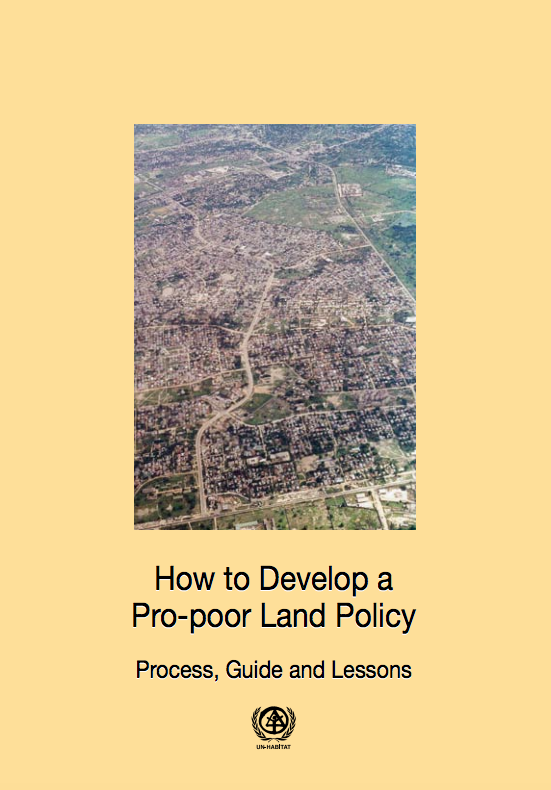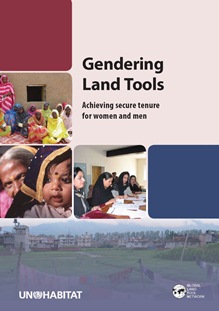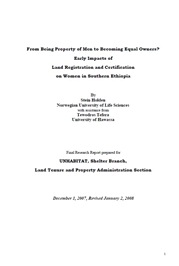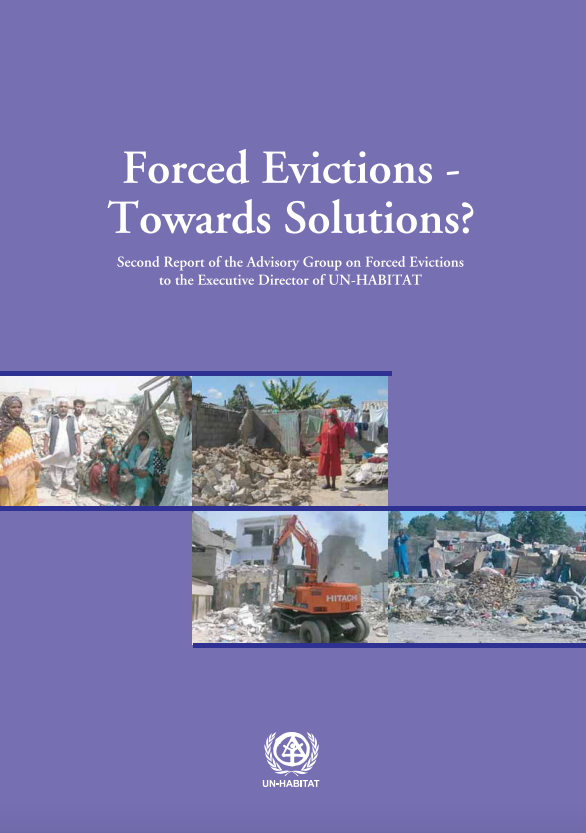Focal point
Location
The Global Land Tool Network (GLTN) is an alliance of global regional and national partners contributing to poverty alleviation through land reform, improved land management and security of tenure particularly through the development and dissemination of pro-poor and gender-sensitive land tools.
Secure land tenure and property rights are fundamental to shelter and livelihoods as well as the realisation of human rights, poverty reduction,economic prosperity and sustainable development.
The Global Land Tool Network (GLTN) main objective therefore is to contribute to poverty alleviation and the Millennium Development Goals through land reform, improved land management and security of tenure.
UN-Habitat through GLTN continues to work towards this with partners who include international civil society organizations, international finance institutions, international research and training institutions, donors and professional bodies.
Most developing countries use conventional land administration systems which cover less than 30 per cent of the country, leaving up to 70 per cent of citizens looking to informal and/ or customary approaches for their tenure security.
While there are many examples of good land policies, there are few policies that have been fully implemented due to lack of pro-poor, gendersensitive and largescale land tools. Further, conventional land titling approaches have largely failed to deliver their expected results since existing technical solutions are too expensive, inappropriate for the range of tenure found in developing countries, unsustainable financially or in terms of available capacity, and instead a range of land tenure options is more appropriate.
Core Values
Consequently, GLTN's core values and principles are founded in the development of land tools that are:
- Pro poor;
- Equitable;
- Sustainable;
- Affordable;
- Systematically large scale /scalable; and,
- Gender-sensitive, while taking into consideration:
- Good governance;
- Subsidiarity; and,
- The Continuum of Land Rights.
GLTN Objectives and Mandate
GLTN has developed a global partnership on land issues pulling together global partners, as well as many individual members. These partners include international networks of civil society, International Finance Institutions, international research and training institutions, donors and professional bodies. It continues to take a more holistic approach to land issues by working towards the following objectives:
- The establishment of a continuum of land rights, rather than just focus on individual land titling
- Improving and developing pro-poor land management, as well as land tenure tools
- Unblocking existing initiatives Assisting in strengthening existing land networks
- Supporting in the development of gendered land tools which are affordable and useful to grassroots
- Improving the general dissemination of knowledge about how to improve security of tenure
- Improving the general knowledge dissemination on the improvement of security of tenure
Resources
Displaying 276 - 280 of 286How to develop a pro-poor land policy: Process,Guide and Lessons
Developing new land policies can be a long and difficult process. It is even more so if the policies are to be pro-poor – if they are to help correct the disadvantages that poor people typically suffer in many areas of land policy.
Gendering Land Tools
This publication, from the Global Land Tool Network, presents a mechanism for effective inclusion of women and men in land tool development and outlines methodologies and strategies for systematically developing land tools that are responsive to both women and men’s needs. Equal property rights for women and men are fundamental to social and economic gender equality. However, women often face discrimination in formal, informal and customary systems of land tenure.
From Being Property of Men to Becoming Equal Owners? Early Impacts of Land Registration and Certification on Women in Southern Ethiopia
Traditionally, the land tenure system in Southern Ethiopia may be characterised by patrilineal inheritance and virilocal residence. Young girls have very little influence over when and whom to marry. Further, they have to go to a husband that their clan or family has identified for them, meaning that they after marriage move to the home of their new husband and inherit no land from their parents. Bride prices and dowries are commonly used, and girls are seen as the property of the husband and his clan. This also implies that if the husband dies, his wife is still the property of his clan.
Forced Evictions - Towards solutions?
This publication is the second report of the Advisory Group on Forced Evictions (AGFE) to the Executive Director of UN-Habitat. It contains follow-up information on eviction cases documented in the first report, 15 new cases, and a detailed analysis of the current global situation regarding forced evictions and successful counterstrategies, methodologies and tools to stop and prevent forced evictions.
Handbook on best practices,security of tenure and access to land: Implementation of the Habitat Agenda
The Handbook on Best Practices, Security of Tenure and Access to Land--Implementation of the Habitat Agenda (2003) reviews material produced by UN Habitat partners up to and including 1999, in terms of the implementation of the Habitat Agenda. At the time of publishing, this document was the most comprehensive global overview of progress made in countries towards achieving the Habitat Agenda in the area of land tenure and land management/administration.









